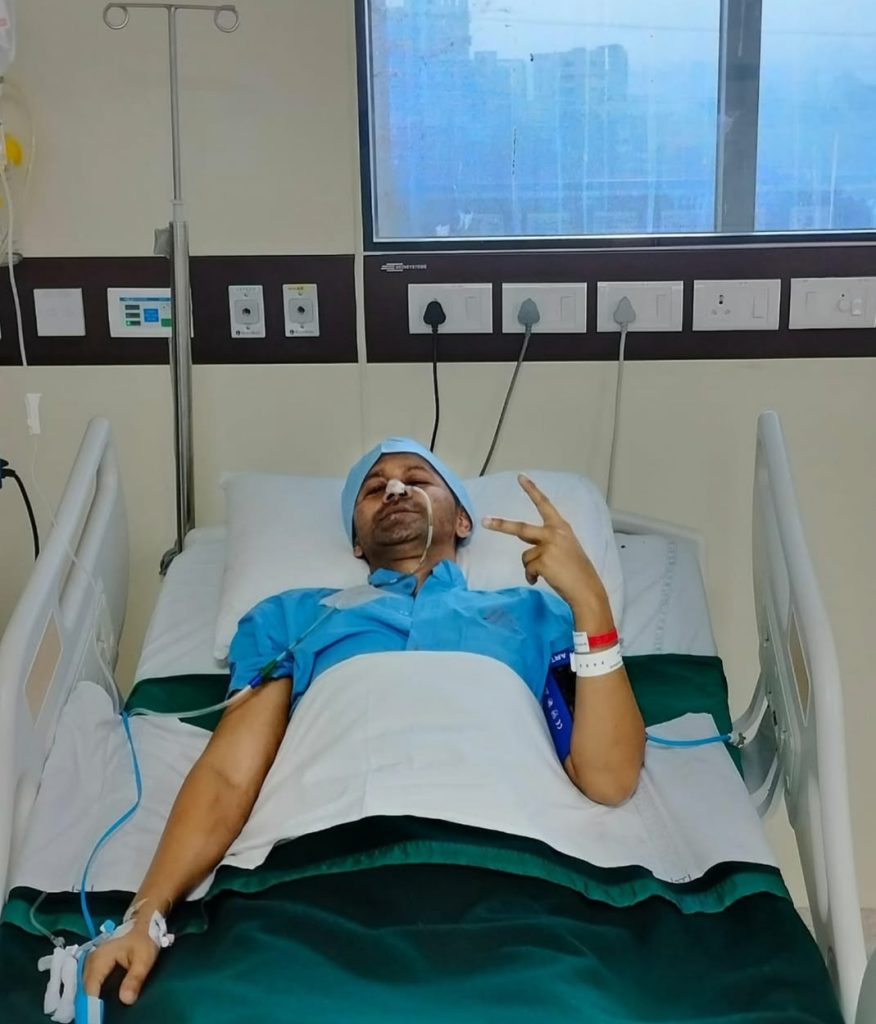The entertainment industry and fans alike were deeply saddened by the untimely passing of actor Vibhu Raghave, who succumbed to stage 4 colon cancer. His courageous battle against the disease, openly shared with his followers, brought much-needed attention to the devastating impact of advanced colorectal cancer and the importance of awareness, early detection, and ongoing research. This article delves into Vibhu Raghave’s journey, the complexities of stage 4 colon cancer, and the broader implications for public health.

Vibhu Raghave’s Battle: A Public Journey
Vibhu Raghave, known for his roles in popular television shows and web series, revealed his diagnosis of stage 4 colon cancer in early 2022. From the outset, he chose to share his fight publicly, using his platform to spread awareness about the disease. Through social media, he documented his treatments, challenges, and moments of hope, inspiring many with his resilience and positive outlook. His candidness helped destigmatize cancer and encouraged open conversations about health struggles.
His journey highlighted the arduous nature of battling advanced cancer, involving multiple rounds of chemotherapy, radiation, and other medical interventions. Despite the physical and emotional toll, Vibhu remained committed to raising awareness, advocating for better understanding of cancer, and supporting others facing similar diagnoses. His brave fight, however, ended on 2nd June 2025, leaving a void in the hearts of his loved ones and a significant impact on public consciousness.
Understanding Stage 4 Colon Cancer
Colon cancer, also known as colorectal cancer, originates in the large intestine (colon) or the rectum. It typically begins as small, noncancerous (benign) clumps of cells called polyps that form on the inside of the colon. Over time, some of these polyps can become cancerous. Stage 4 colon cancer, the most advanced stage, signifies that the cancer has metastasized, meaning it has spread from the colon to distant organs or tissues in the body. Common sites for metastasis include the liver, lungs, peritoneum (the lining of the abdominal cavity), and distant lymph nodes.

The Challenges of Stage 4 Diagnosis
A stage 4 diagnosis often presents significant challenges due to the widespread nature of the disease. Symptoms can vary depending on where the cancer has spread but may include:
- Persistent changes in bowel habits: Diarrhea or constipation, or a change in the consistency of your stool.
- Rectal bleeding or blood in your stool.
- Persistent abdominal discomfort: Cramps, gas, or pain.
- A feeling that your bowel doesn’t empty completely.
- Weakness or fatigue.
- Unexplained weight loss.
The late diagnosis of colon cancer, as was the case with Vibhu Raghave, underscores the critical importance of early screening and recognizing warning signs. Many people do not experience symptoms in the early stages, making routine screenings vital for detection when the cancer is more treatable.
Treatment Approaches for Stage 4 Colon Cancer
While a stage 4 diagnosis is serious, advancements in medical science offer various treatment options aimed at controlling the disease, improving quality of life, and extending survival. These often involve a multidisciplinary approach:
- Chemotherapy: The primary treatment for stage 4 colon cancer, chemotherapy uses drugs to kill cancer cells throughout the body. It can be administered intravenously or orally.
- Targeted Therapy: These drugs focus on specific abnormalities present within cancer cells, blocking their growth and spread.
- Immunotherapy: This relatively newer treatment harnesses the body’s own immune system to fight cancer. It is particularly effective for certain types of colorectal cancers with specific genetic markers.
- Surgery: In some cases, surgery may be an option to remove the primary tumor in the colon, or to remove metastases in other organs if they are limited and resectable (e.g., liver or lung resections).
- Radiation Therapy: While less common for widespread stage 4 colon cancer, radiation can be used to alleviate symptoms like pain or bleeding in specific areas.
- Palliative Care: An essential component of treatment, palliative care focuses on providing relief from the symptoms and stress of a serious illness, aiming to improve quality of life for both the patient and their family.
The choice of treatment depends on various factors, including the extent of the cancer, the patient’s overall health, and the presence of specific genetic mutations in the tumor.
The Broader Impact and Call for Awareness
Vibhu Raghave’s battle brought colon cancer into the public discourse in a significant way. His openness served as a powerful reminder that cancer can affect anyone, regardless of age or profession. His story highlights several critical points for public health and individual well-being:
- Importance of Early Detection: Regular screenings, such as colonoscopies, are crucial for detecting polyps before they become cancerous or for catching cancer in its early, more treatable stages. Individuals with a family history of colon cancer or certain risk factors should discuss earlier or more frequent screenings with their doctors.
- Recognizing Symptoms: While often subtle, persistent changes in bowel habits, unexplained weight loss, or abdominal pain should prompt a visit to a healthcare professional. Ignoring these signs can lead to delayed diagnosis and more advanced disease.
- Lifestyle and Prevention: While not a guaranteed preventative measure, adopting a healthy lifestyle can reduce the risk of colon cancer. This includes a balanced diet rich in fruits, vegetables, and whole grains, regular physical activity, maintaining a healthy weight, and limiting alcohol consumption. Understanding the Impact of Lifestyle on Health
- Research and Advancements: The continuous research into new treatments, targeted therapies, and immunotherapies offers hope for improved outcomes for patients with advanced cancers. Support for cancer research is vital.
- Mental and Emotional Support: Battling cancer is not just a physical fight; it’s also a significant mental and emotional challenge. Access to psychological support, counseling, and patient support groups is crucial for patients and their families. The Role of Mental Well-being in Chronic Illness
- Ayurveda and Integrative Approaches: While modern medicine forms the cornerstone of cancer treatment, some individuals explore complementary therapies like Ayurveda to manage symptoms, improve well-being, and support the body during conventional treatments. It’s crucial to discuss any integrative approaches with your primary oncologist to ensure they don’t interfere with standard care. Exploring Complementary Therapies in Health It is important to note that Ayurveda should not replace conventional cancer treatments but rather complement them under medical guidance.
Conclusion
Vibhu Raghave’s courageous fight against stage 4 colon cancer and his subsequent passing serve as a poignant reminder of the fragility of life and the relentless nature of this disease. His legacy extends beyond his acting career, encompassing his role as an advocate for cancer awareness. By understanding the complexities of colon cancer, emphasizing early detection, promoting healthy lifestyles, and supporting ongoing research, we can collectively work towards a future where fewer lives are tragically cut short by this preventable and treatable disease. His story reinforces the message that health is paramount, and proactive measures, coupled with timely medical intervention, are key to a healthier future.